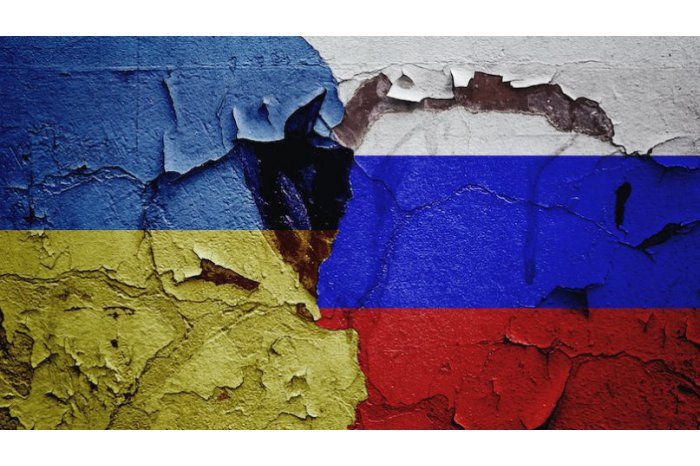Worsening of Russian-Ukrainian relations can dynamite world stability
15:21 | 19.04.2021 Category: Interview, Event
Chisinau, 19 April /MOLDPRES/ - The world changed following the events from Crimea and Donbas in 2014. The Yalta-Potsdam agreements seemed that they would ensure a predictable world and without territorial pretensions for more decades ahead. Some analysts of international stature hastened to say that an age of peace and cooperation was coming after the end of the Cold War.
Nevertheless, there were always forces in Russia which did not see their own country but a world super-power, which is to divide the world into spheres of influence along with the United States. Moreover, on the post-Yeltsin period, more politicians appeared in Russia, who set the goal of full or partial restoration of the USSR.
Starting from the middle of the first decade of the 21st century, the USA said it was abandoning the principle of the spheres of influence and that each nation had right to choose its destiny. It is obvious that the western civilization, with its democratic and advanced model from the economic viewpoint, was attracting the former Soviet satellites into the Euro-Atlantic structures. This was hard to be digested by Moscow. The age of Russia discretionarily managing the central and eastern Europe was practically ending.
The conflicts which prompted the appearance of separatism in Transnistria, Abkhazia, South Ossetia, Nagorno-Karabakh and later on in Crimea and Donbas were planned by the Soviet KGB and were scheduled for ceasing the processes of European and Euro-Atlantic integration of the former Soviet republics. Yet, the most difficult ordeal for Moldova is undoubtedly Ukraine’s getting out of Kremlin’s orbit. To thwart this process, which was putting an end to Russia’s imperial ambitions, the events of 2014 were put in practice, when Crimea and Donbas were practically separated from the national Ukrainian territory.
The West’s reaction was not according to the expectations. The European Union’s sanctions were timid and did not discourage Moscow’s wish to get Ukraine and other regions under its rule. A simulacrum of negotiations and agreements started, with the participation of France and Germany, which gave birth to the Minsk Agreement, within the Normandy group, which was actually born dead. Neither Germany, which is interested in the Russian gas, nor France, which has been willing to be European leaders since Macron’s rule till present and considers itself the only able to calm down Putin, showed neither political will nor celerity in actions, in order to be able to solve the conflict. At a certain time, it seemed that Crimea was an acquisition which will fulfill the cravings of Russia and Donbas will turn into a frozen conflict, just as in the case of Transnistria.
And yet, an escalation of tensions between Russian and Ukraine began in 2021. A concentration of Moscow’s military forces has been taking place at the borders with Ukraine in the last two weeks and more shootings take place and people die in Donbas. Nobody can foresee which the true plans of Putin are. A large-scale war against Ukraine or a strong and dangerous blackmail, in order to get the international recognition of Crimea’s annexation and guarantees that Ukraine will not become NATO member?
Anyway, there is an extremely dangerous balance between war and peace. In the context, a lot of people expect tough American sanctions against Russia; yet, they were moderate. The strongest analysts described this step by the White House as a wise one, as the devastating sanctions for the Russian economy were able to put Putin in a desperate and quite dangerous situation, in the conditions of the exaggerated concentration of armed forces in such sensitive zones as the Russian-Ukrainian border.
Ukraine does not feel protected at all and desperately tries to resort to its right to join the NATO. Moreover, Ukraine reminds the world about the Budapest memorandum, under which the great powers, including Russia, were recognizing the Ukrainian territorial integrity in exchange for Kiev’s refusal to have status of nuclear country. Or, Ukraine believes that, given that these guarantees were violated, it has right to re-become a nuclear force, in order to defend the country. Such an approach can dynamite a system of international principles and agreements, which were established following the collapse of the USSR.
The world is now keeping a close eye on the events taking places at the eastern borders of Ukraine. Some analysts calm us down, stressing that Moscow, through its actions, was willing to distract attention from its own economic problems and the Navalny case. The others do not rule out the escalation of the situation and the danger of a large-scale war, which can reach Transnistria. The next weeks will give more answers as to the actions from the Russian-Ukrainian border; yet, a thing is certain: the mankind is facing one of its most critical moments after the World War II.

